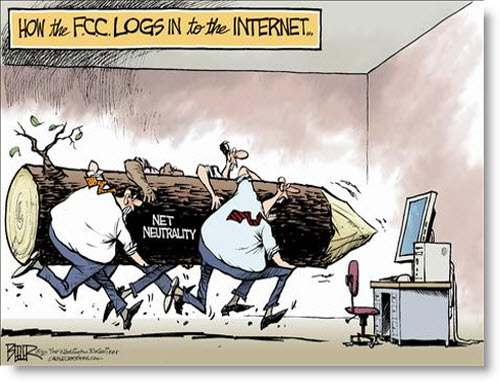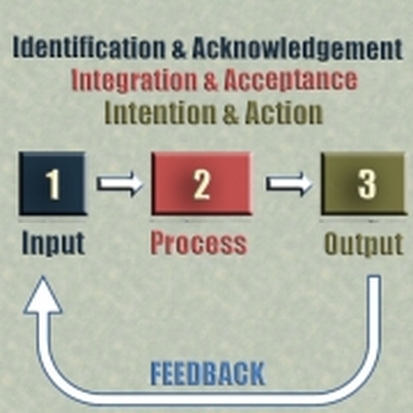|
Today's resource suggestion is a short and entertainingvideo with a very strong point that is made. I think there may be some metaphysical commitments hiding in the video that I don't agree with, but those disagreements are immaterial to the case presented.
0 Comments
I got a little bit of push-back at the end of last week for my Pope-related resource suggestions. Interestingly, I think the push-back came from the only two people that read that suggestion, and I doubt they actually read the articles, just the comments I had concerning them. I'm not sure if they've read previous main blog posts I've made, specifically ones defending the Pope and the papacy or those concerning epistemic rectitude.
I have already written more extensively than I really desire to concerning the Pope and the papacy, but that push-back (and arguments on social media) ought to be addressed. Rather than writing (and writing, and writing) about a subject that is superfluous to philosophical inquiry, I think I will outsource my arguments concerning Catholic social teaching, encyclicals, and the capricious foundations of the Church in politics. There could be no-one better suited to take on the task than Tom Woods. In Episode 497 of the Tom Woods Show, Tom addresses many of the issues I have brought up before, concerning the relationship between Doctrine and political considerations, the nature of authority and infallibility, and the relationship between epistemology and ethics. Anyone who has an opinion on Pope Francis' soundbites or "encyclical" ought to listen to this short podcast and read the resources linked in the show notes. The time has come, I think, to purge some podcasts off my list. I have more podcasts than I have time, and some of them have ceased providing utility for my current situation... which happens a few times a year. Usually, when this time comes, I share on facebook the ones that I am abandoning and why. Now that I have a platform on which I talk about podcasts incessantly, I figure this may be a better place to do so.
Podcasts I continue to listen to (in order of priority):
Podcasts I no longer listen to:
Podcasts that have been discontinued:
As one would expect, I am opposed to all of the TLAs in both principle and based on their actions. Of late, the FCC has been at the heart of some non-issues. Most especially that of Net Neutrality, which simply would not be an issue in a free society.
In the latest instance of the FCC attempting to halt technology and freedom, they are attempting to lock down all of the software interactions with hardware concerning network infrastructure. This is a major problem for three reasons:
It's been a while since I've blatantly ripped off Tom Woods. Today is a good day to do so, though. Today's recommendation is Atlas MD. "How would medicine possibly help the 'underprivileged' without socialist, nationalized healthcare?" Dr. Josh Umbehr, from Kansas, has a demonstrable and tested solution to just such a question. A thorough but simple exploration of his model of free (in the liberty sense, not monetary sense, but it's pretty damn close to no-cost) medicine recently appeared in Tom Woods Show Episode 481. A project as simple and ambitious as Atlas MD is going to take some time to gain momentum, but the numbers recounting his success don't lie. His primary project is upholding the Hippocratic Oath while his secondary project is to encourage other physicians to do the same. If people become more aware of this revolutionary approach of "charge a reasonable price and allow the market to do it's job" and ask for it, medicine may become a respectable career choice by the end of my lifetime. AtlasMD has a podcast feed, blog, and a page oriented at helping other doctors join the free market. I strongly recommend that you listen to the podcast episode, and then talk to your primary care physician about it (and maybe ask about bitcoin, as well; my doctor takes it, and so should yours).
This suggestion is a bit time consuming, but no more so than a few of the books I've suggested. Today's suggestion is a podcast series on the Trivium method of reason and it's relationship with NonViolent Communication.
I recommend listening to this series, as it effectively outlines NVC, the Trivium, and provides a summary education concerning CIA programs like MKUltra and the cultural zeitgeist of cybernetics. One can make do with listening to episodes 363 through 370, but if one wishes, tehy can listen to all of the videos on this page in order to get the full picture. http://schoolsucksproject.com/category/podcast/the-trivium-applied-to-communication/ In today's resource suggestion, Tom Woods discusses Caesar and the Lamb, a book that's been on my amazon wishlist for a while, now. The discussion in Episode 452 of the Tom Woods Show centers on the history of the early Church and it's relationship to the sixth commandment (or fifth, if your knowledge of the Faith is limited to the Catechism). It is a detailed and lighthearted exploration of the historical record and the philosophy hidden behind the Church's prohibition on being a soldier and it's change of heart after conquering the Roman empire.
This is a must-listen for anyone, even non-Christians, as it explores the origin of just war theory and the relationship it bears to the Christian ethos. I wrote a post about paradigmatic awareness a while back. I wrote it while editing a couple chapters in my book. Those chapters were concerned with epistemic rigor and the manner in which one can rightly approximate knowledge using experience, logic, and thresholds of doubt. I believe such things to be more important than nearly any other human faculty. Because my book is not yet completed or published, I will share someone else's work which is similar, if not quite as deliberate, to those chapters. The Voluntary Life Podcast has a three episode series titled "How to Think for Yourself": Part 1 is concerned with why methods of reason are important to rational creatures and begins to address the difficulties in establishing a method of reason. Part 2 is concerned with a brief overview of the scientific method, philosophy of science, and their relationship to epistemology. Most important, it explains the requirements for epistemic confidence. Part 3 is concerned with a priori reasoning and the relationship between reason and freedom. It's encouraging to see someone else produce work that is so similar to my own, in that it makes me feel a little less crazy. The differences between the two are also encouraging, as it makes me feel I have something to contribute to the conversation. I am considering different distribution methods for my book. Feel free to read more about it here.
There is a liberty-oriented radio show that plays daily for a few hours. It is syndicated on something like 150+ radio stations around the globe, including Africa. It's called Free Talk Live, and every episode is posted on youtube after the broadcast concludes. They also have a podcast feed that plays all the episodes (on the left side of the homepage).
Full disclosure, I do not really enjoy listening to Free Talk Live. I find it to be repetitive and elementary (and certain personalities on the show really get on my nerves). Of course, this is because I'm already neck-deep in libertarian culture... the show is played nightly on something like 150+ broadcast stations around the globe, including Africa and brings the message of liberty to thousands of people that would otherwise never hear something outside the 3x5 index card of educational talking points they learn at school and on TV. It's a part of the Liberty Radio Network, which does so much for bringing the message of liberty to people. I used to listen to Sunday episodes with Brian and Stephanie (of Sovryn Tech) before they moved on to bigger and better careers and Wednesday nights with Christopher Cantwell before he got suspended for arguing with a liberal on twitter. After Cantwell's suspension, viewership numbers dipped. Now that he is back, people ought to do what they can to boost those numbers back to their original magnitude, if not beyond. Cantwell provides an essential service in the libertarian culture, as a watchdog against corruption in the "movement". Of course, those that find themselves attacked by Cantwell have substantial resources to bring against him; this results in a need for more people to support him free-market-style. So, this is a combination resource suggestion and call to action. Please watch and like this video, amongst the others that Cantwell will be a part of in the future. Who knows, maybe you'll learn something along the way.
As I've said before, Cantwell, with rare exception, tends to say exactly what I'm thinking in more or less the way I'm thinking it. He has an incredibly rational, well-read, and solidly grounded approach and interpretation of facts. I'm not saying this because I agree with him, I'm saying it because he's managed to make me critically assess my beliefs and has led to me changing my position on a handful of things. He's got a grasp of economics and the human condition that rivals and even surpasses that of Andreas M Antonopoulos.
He doesn't always couch his arguments in the most dispassionate or compassionate manner, but that's not his rhetorical style. What he does is effective, and that's why those unable to measure up to his standards of integrity and knowledgeability are apt to attempting to silence and exile him. It is ironic that the anarchist, atheist, asshole, with a criminal record from New York City is, quite literally, the conscience of "the liberty movement".
He recently posted what has rapidly become his most popular piece of work by a tremendous margin. It was a response to the SCotUS' ruling mandating religious support of gay marriage licenses. Unlike many people who simply look at such issues as either, "Yay! Gays!" or "Boo! Gays!" Cantwell and I have an identical and less-conventional position on such issues: tell the state to mind it's own goddamned business.
As is the case with any other economic or human social issue, government involvement makes everything worse rather than better. The state has absolutely no reason, moral or otherwise to concern itself with the voluntary interactions of human beings, nor they types of agreements (or contracts, for those who believe in contracts) that humans make between themselves. The Church has no reason to try to make sinners the enemy of the state and use violence to try to force them to behave morally, as it will only increase opposition to the Church, and justly so. When did Christ ever take a sword to the adulterer? In the same way, the state cannot use violence to force the Church to acknowledge the state's claim to redefine an institution as old as the human race in order to garner political support. Inserting itself into the voluntary interactions of humans: forcing cake shops to serve customers, punishing churches that will not abandon their sacramental duties, and creating any number of perverse economic incentives will not make discrimination go away, it will justify and magnify it. Just as people are incentivized to kill endangered species that come to roost on private property, they are incentivized to make protected classes of humans go away when they come to roost. |
Archives
October 2015
Categories
All
|








 RSS Feed
RSS Feed
